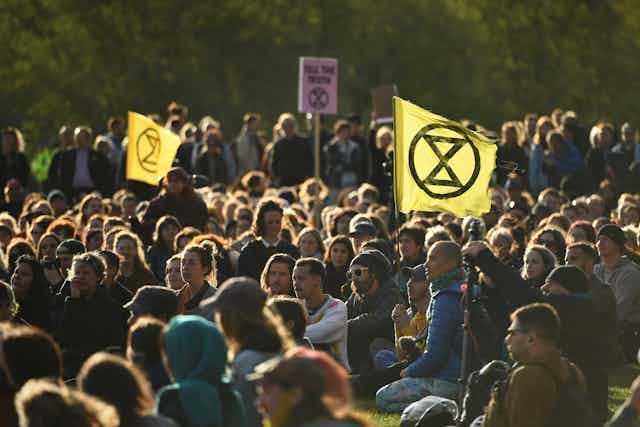As the climate crisis is increasingly felt across the globe, protesters take to the streets and politicians scrabble to respond, a crucial question is beginning to emerge. How can governments develop climate strategies which build public support for action? An announcement by six UK parliamentary committees that they will hold a citizens’ assembly on the climate emergency is a crucial step toward answering that question.
There are no shortage of prescriptions for climate action. From economists calling for an economy-wide carbon tax, to scientists advocating “earth system governance” at the planetary level, there are experts assuring us that they have strategies to cut greenhouse gas emissions quickly and effectively. But there’s a dangerous illusion sitting behind these prescriptions – what the social scientist Maarten Hajer called the illusion of “cockpitism”. Cockpitism describes the assumption that you can dictate climate solutions the same way a pilot might fly a plane, sitting in the cockpit charting the most efficient course, with perfectly calibrated instruments and levers.
This illusion is very problematic – and not just because the climate system is an entity far more complex than a plane. It is problematic because it cuts people out. It is a seemingly apolitical view that self-defined “experts” can decide what is best for people and impose those solutions. At its most extreme, it suggests that democracy is the problem, not the solution – as veteran earth scientist James Lovelock once said, “climate change may be an issue as severe as a war. It may be necessary to put democracy on hold for a while.”
My own research suggests that the opposite is true. To tackle the climate crisis, we need more, and better, democracy, not less. My interviews with politicians showed that they were convinced of the need for action on climate, but did not know what support there would be from the electorate. As one told me: “I’ve had tens of thousands of conversations with voters, and I just don’t have conversations about climate change.”
But this may be about to change, as we know from polling data that generalised concern about climate change is now at an all-time high. Yet how does this translate into support for far-reaching climate action? Would people be more likely to support locally based programmes, with powers given to cities and towns to cut emissions? Would there be support for introducing a ban on petrol and diesel vehicles, over the next decade? Would people support higher taxes on carbon, if the money was invested in low-carbon solutions and support for vulnerable households? And crucially, how could this all link together into a credible, effective climate strategy that would build the mandate for further action toward a net-zero carbon target?

This is where processes such as a citizens’ assembly, or other deliberative processes such as citizens’ juries or deliberative workshops, can help. These processes allow a representative group of citizens to meet with experts on equal terms, assess evidence, debate and suggest solutions. They are not a substitute for electoral politics, but they provide a more nuanced and detailed understanding of voters’ viewpoints than traditional political polling or focus groups.
At the recent Citizens’ Assembly on climate change held in Ireland, citizens offered up a surprisingly radical and confident set of suggestions, most of which the government is now taking forward. In the UK, many local areas are now setting up deliberative processes to decide their own next steps on climate.
Done well, such processes can help to develop a more inclusive, less divisive politics, countering the distrust of “experts” and allowing a constant interplay between the views and values of the public and politicians.
A citizens’ assembly is not a panacea. Deliberation won’t, in and of itself, solve the problem. We need far-reaching action which will require radical policy and confrontation of vested interests. But this policy and action will only be achievable if people understand and support it. The more we find out about how to build a public mandate for climate action, and the more we include people in genuine debate and deliberation, the more likely we are to find a way through the climate crisis. If it’s not democratic, it’s not realistic.


